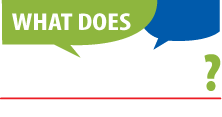Phrases starting with the letter: A B C D E F G H I J K L M N O P Q R S T U V W X Y Z
Definition of: excess
(ik·ses′) noun
1. That which passes the ordinary, reasonable, or required limit.
2. Inordinate gratification of appetite.
3. The amount by which one thing is greater than another; overplus.
—adjective (also ek′ses) Being above a stipulated amount; extra. [<OF exces <L excessus a departure <excedere. See EXCEED.] Synonyms (noun): dissipation, exorbitance, extravagance, intemperance, lavishness, overplus, prodigality, profusion, redundance, redundancy, superabundance, superfluity, surplus, waste, wastefulness. Excess is more than enough of anything, and, since this in many cases indicates a lack either of judgment or of self–control, the word is used frequently in an unfavorable sense. Careless expenditure in excess of income is extravagance; we may have also extravagance of language, professions, etc. As extravagance is excess in outlay, exorbitance is excess in demands, especially in pecuniary demands. Overplus and superabundance denote in the main a satisfactory, and superfluity an undesirable, excess; lavishness and profusion, a generous or bountiful excess. Surplus has none of the unfavorable meaning that often attaches to excess; a surplus is that which remains over after all demands are met. Redundance or redundancy refers chiefly to literary style, denoting an excess of words or matter. Excess in the moral sense is expressed by dissipation, prodigality, intemperance, etc. Antonyms: dearth, defect, deficiency, destitution, economy, failure, frugality, inadequacy, insufficiency, lack, need, poverty, scantiness, shortcoming, want.

Comment about this word, ask questions, or add new information about this topic: